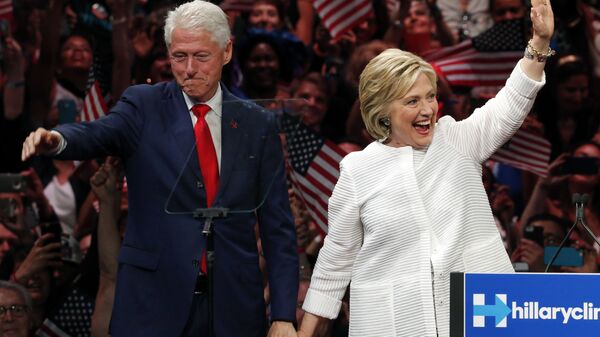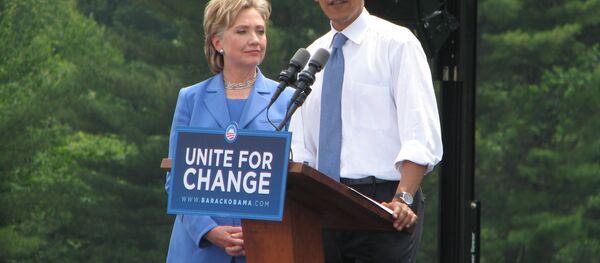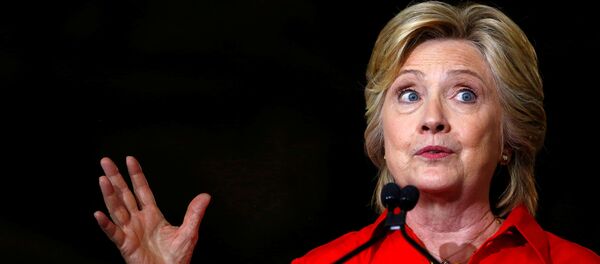The Clintons have long been known for pursuing interventionist foreign policies; there is a little if any doubt that Hillary Clinton will follow in her husband's — ex-president Bill Clinton — footsteps if elected, according to James W. Carden, former advisor on Russia to the Special Representative for Global Inter-governmental Affairs at the US State Department.
"Hillary Clinton has repeatedly called for a more active US foreign policy. The 2016 election is shaping up to be, among other things, a battle between the inarticulate isolationism of Donald Trump and Hillary Clinton's liberal interventionism. Hers is an approach which came into vogue during the administration of her husband," Carden writes in his article for Consortiumnews.com.
Furthermore, regardless of the fact the Bush administration promised the Kremlin that NATO would not expand "one inch eastward," Bill Clinton pushed ahead with the Alliance's expansion toward Russia's borders.
Interestingly enough, in June 1997, a group of American diplomats and lawmakers published an open letter to then-President Clinton, urging him to reconsider his NATO policies.
"Russia does not now pose a threat to its western neighbors and the nations of Central and Eastern Europe are not in danger. For this reason, and the others cited above, we believe that NATO expansion is neither necessary nor desirable and that this ill-conceived policy can and should be put on hold," the letter said.
"During Clinton's tenure, the US military was dispatched on ostensibly humanitarian grounds in Somalia (1993), Haiti (1994), Bosnia (1995), and Kosovo (1999). Clinton also directed airstrikes on Sudan in what was said to be an attempt on Osama bin Laden's life," Carden continues, adding that Clinton also bombed Iraq in 1998 "over its violations of the NATO enforced no-fly zones."
The belief in the efficiency of the US-led "humanitarian interventions" also originated from the times of President Clinton who authorized NATO bombing campaigns in Yugoslavia.
Clinton's interventions in the Balkans set the template for George W. Bush's operations in Iraq and later Barack Obama's aerial campaign in Libya.
According to Carden, if Hillary wins the White House, America's foreign policy "realism" may sink into oblivion.
Daniel Larison of the American Conservative shares Carden's stance, calling Hillary Clinton "a hawk."
"In almost every case for the last twenty years, Clinton has reliably sided with those favoring more rather than less aggressive measures in response to foreign conflicts and crises. She did this during her husband's administration ('I urged him to bomb' [Kosovo]), she did it as a senator with her Iraq War authorization vote, and she did it as Secretary of State (see Libya, Syria, etc.)," he writes in his opinion piece.
"The clear signals of Clinton's readiness to go to war appears to be aimed at influencing the course of the war in Syria as well as US policy over the remaining six months of the Obama administration," the journalist warned.
"Humanitarian" interventions have become the Clinton's "family value," Carden remarks.
The question remains open whether the US will continue its "self-appointed role as the policeman of the world" or the next administration will put — in the words of Republican presidential nominee Trump — "America First."




